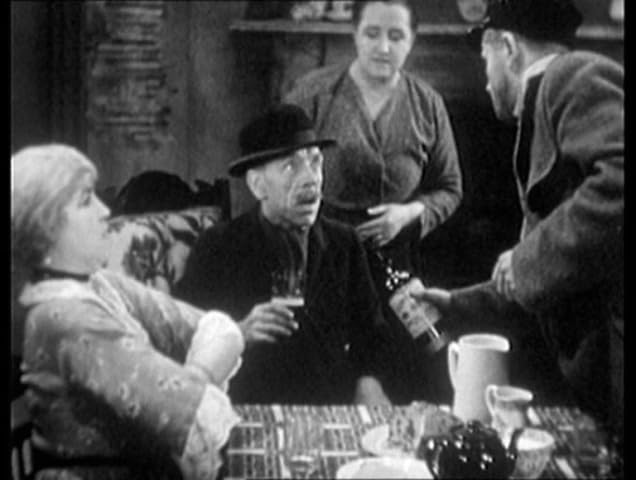banjax

A friend of mine, who wasrenovating a bathroom in her house, posted the following in a social media post:
The real skylight is one floor above in the bathroom we’re renovating. A water leak during demolition banjaxed my entire kitchen ceiling.
To which another friend replied:
Outstanding use of “banjaxed.”
Before this post, I’d never noticed the word, although I should have as it appears in several rather famous books that I have read. It’s Irish slang. Banjax is first recorded in 1925 as a noun meaning a mess in Sean O’Casey’s play Juno and the Paycock, The character Jack Boyle says about an inheritance he is supposed to get from a first cousin:
I’m tellin’ you the scholar, Bentham, made a banjax o’ the Will; instead o’ sayin’, “th’ rest o’ me property to be divided between me first cousin, Jack Boyle, an’ me second cousin, Mick Finnegan, o’ Santhry,” he writ down only, “me first an’ second cousins,” an’ the world an’ his wife are afther th’ property now.
The word seems to have been a favorite of writer Flann O’Brien. The adjective appears in his 1939 At Swim-Two-Birds:
And a very good idea as you say, Mr. Shanahan. But when the roller passes over his dead corpse, be damned but there’s one thing there that it can’t crush, one thing that lifts it high off the road—a ten ton roller, mind! . . .
Indeed, said Orlick, eye-brow for question.
One thing, said Furriskey, sole finger for true counting. They drive away the roller and here is his black heart sitting there as large as life in the middle of the pulp of his banjaxed corpse. They couldn’t crush his heart!
And O’Brien uses it as a verb again the next year in The Third Policeman, one of my favorite novels:
“Michael Gilhaney,” said the Sergeant, “is an example of a man that is nearly banjaxed from the principle of the Atomic Theory. Would it astonish you to hear that he is nearly half a bicycle?”
“It would astonish me unconditionally,” I said.
“Michael Gilhaney,” said the Sergeant, “is nearly sixty years of age by plain computation and if he is itself, he has spent no less than thirty-five years riding his bicycle over the rocky roadsteads and up and down the hills and into the deep ditches where the road goes astray in the strain of the winter. He is always going to a particular destination or other on his bicycle at every hour of the day or coming back from there at every other hour. If it wasn’t that his bicycle was stolen every Monday he would be sure to be more than half-way now.”
“Half-way to where?”
“Half-way to being a bicycle himself,” said the Serjeant.
And he would use it yet again in his 1961 Hard Life in a passage discussing the Jesuits:
—The Fathers are all over the world, they speak and write in all languages, they have built a wonderful apparatus for the propagation of the faith.
—Some people at one time thought they were trying to banjax and bewilder the One, Holy and Apostolic. Oh and there are good people who are alive today and think the Church had a very narrow escape from the boyos of yesteryear.
Samuel Beckett also used it in the 1954 typescript of Waiting for Godot:
That Lucky might get going all of a sudden. Then we’d be banjaxed.
It was subsequently changed to ballocksed, which is the word that appears in most print editions of the play.
So as slang terms go, banjax has a rather literary pedigree.
The OED gives its origin as “unknown; perhaps originally Dublin slang.” Green’s Dictionary of Slang is more helpful, saying it’s a semi-euphemistic variation of ballocks. Green’s speculation makes a lot of sense when we look at the development of ballocks. It of course started out as a noun meaning testicles, but by 1919 it was being used to mean rubbish, nonsense. There’s also a 1901 use of bollocks as a verb, but that’s in an American context. E. P. Alexander, who had commanded the Confederate artillery barrage that supported Pickett’s Charge on the third day of the battle of Gettysburg wrote in a 1901 letter:
Never, never, never did Gen. Lee himself bollox a fight as he did this.
So it’s a short leap from ballocks meaning a mess, to make a mess to banjax, essentially meaning the same thing.
Oh, and my friend whose kitchen ceiling was banjaxed, she’s Irish-American. So that fits too.
Sources:
Beckett, Samuel. Waiting for Godot. New York: Grove, 1954, 51. Archive.org.
Gontarski, S. E. “Ballocksed, Banjaxed or Banjoed: Textual Aberrations, Ghost Texts, and the British Godot.” Journal of Modern Literature, 41.4 (Summer 2018), 48–67 at 60. JSTOR
Green’s Dictionary of Slang, n.d (accessed 5 April 2025), s.v. banjax, n., banjax, v.
O’Brien, Flann. At Swim-Two-Birds. New York: Pantheon, 1939, 126. Archive.org.
———. The Hard Life (1961). New York: Pantheon, 1962, 83–84. Archive.org.
———. The Third Policeman (written 1939–40, first published in 1967). New York: Plume, 1976, 83. Archive.org.
O’Casey, Sean. “Juno and the Paycock.” In Two Plays. New York: Macmillan, 1925, Act 3, 98. HathiTrust Digital Archive.
Oxford English Dictionary, second edition, 1989, s.v. banjax, v.; third edition, June 2008, s.v. bollock, n. & adj., bollocks, v.
Piston, William Garrett. “Longstreet, Lee, and Confederate Attack Plans for July 3 at Gettysburg.” In Gary W. Gallagher, ed. The Third Day at Gettysburg & Beyond. Chapel Hill: U of North Caroline Press, 31–55 at 47. Archive.org.
Image credit: British International Pictures, 1930. Fair use of a single still frame from a copyrighted motion picture. Imdb.com.